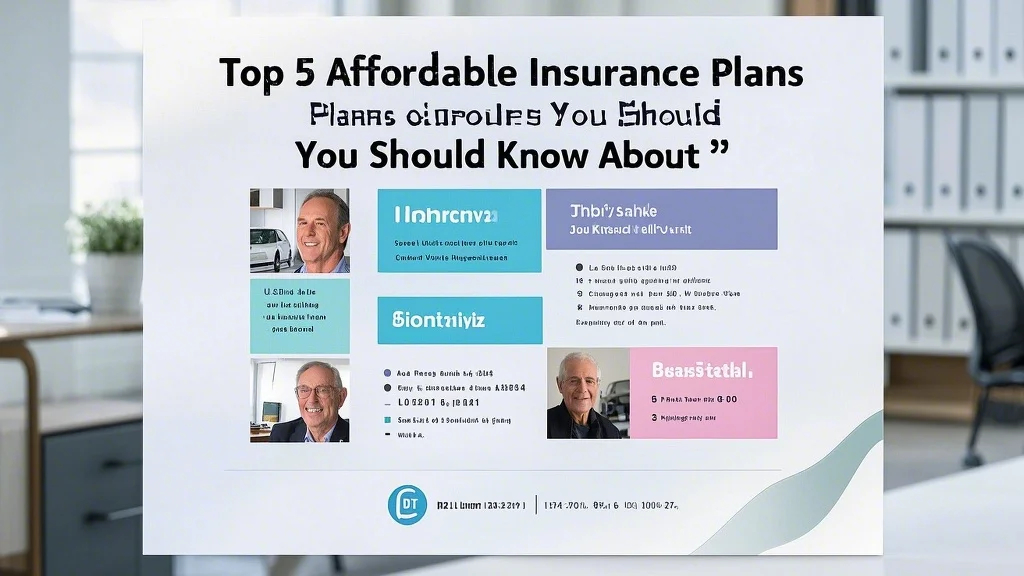Understanding Truly Affordable Insurance Plans
Finding affordable insurance plans requires more than just comparing premium prices – it’s about identifying coverage that delivers genuine value for your specific situation. The most cost-effective plans balance reasonable premiums with appropriate coverage limits and manageable out-of-pocket costs. Many consumers make the mistake of choosing the cheapest option without considering how deductibles, copays, and coverage exclusions could leave them financially vulnerable when claims arise. True affordability means the plan protects your assets without straining your monthly budget, whether you’re looking for auto, health, disability, or renters coverage.
Strategic approaches to affordable insurance plans often involve bundling multiple policies with the same provider, taking advantage of often-overlooked discounts, and adjusting deductibles to match your financial flexibility. Young adults and families just starting out might prioritize different features than empty nesters or retirees. The Affordable Care Act marketplace offers income-based subsidies that can dramatically reduce health insurance costs for qualifying individuals, while many auto insurers provide good driver discounts that reward safe driving habits. Understanding these nuances helps you secure protection that fits both your needs and your budget without compromising essential coverage.
Navigating the Best Car Insurance Companies for Value
Identifying the best car insurance companies for budget-conscious drivers involves evaluating multiple factors beyond just premium costs. Top-rated insurers combine competitive pricing with strong financial stability, responsive claims service, and flexible payment options. Many drivers overlook potential savings from usage-based insurance programs that track driving habits through mobile apps or telematics devices, often offering premium discounts of 10-30% for safe driving. Regional insurers sometimes provide better rates than national carriers in specific areas, making localized comparisons particularly valuable.
When researching the best car insurance companies for affordable coverage, pay special attention to each insurer’s approach to common claims like minor collisions, windshield repairs, and rental car reimbursement. Some companies offer vanishing deductibles or accident forgiveness programs that provide long-term savings for claim-free drivers. Maintaining good credit can significantly impact your rates in most states, as insurers use credit-based insurance scores to predict risk. Young drivers can often save substantially by completing accredited driver education courses or maintaining good grades if they’re students. Regular policy reviews ensure you’re not overpaying for coverage you no longer need as your vehicle ages and your driving record improves.
The Critical Role of Disability Insurance in Financial Planning
Often overlooked in discussions of affordable insurance plans, disability insurance protects your most valuable financial asset – your ability to earn an income. Most people dramatically underestimate their risk of disability and overestimate what government programs will provide if they can’t work due to illness or injury. Individual disability policies come in short-term and long-term varieties, with significant price differences based on elimination periods (the waiting time before benefits begin), benefit periods, and definition of disability. “Own occupation” policies that pay if you can’t perform your specific job cost more but provide superior protection compared to “any occupation” alternatives.
Securing affordable disability insurance often involves strategic choices like opting for longer elimination periods (90 days instead of 30) or limiting benefit periods to 5-10 years rather than covering until retirement age. Many professionals qualify for group disability coverage through professional associations at rates significantly lower than individual policies. Younger buyers typically lock in the best rates, as premiums are based on age and health at policy issuance. An often-missed strategy involves coordinating individual coverage with any employer-provided benefits to create optimal protection without paying for redundant coverage. While disability insurance requires careful evaluation of policy terms, the financial security it provides makes it one of the most valuable yet underutilized forms of protection.
Health Insurance Solutions for Retirees on a Budget
Navigating health insurance for retirees requires different strategies depending on whether you’re eligible for Medicare. Early retirees not yet age 65 often find marketplace plans the most cost-effective option, especially if they qualify for premium tax credits based on income. Medicare-eligible retirees can choose between Original Medicare with supplemental plans (Medigap) or Medicare Advantage plans, each with distinct cost structures and provider networks. Many retirees mistakenly assume Medicare covers all healthcare costs, not realizing it lacks out-of-pocket maximums and excludes services like long-term care, dental, and hearing aids.
Finding affordable health insurance for retirees involves careful evaluation of your expected healthcare utilization and prescription needs. Medicare Advantage plans often advertise low or zero premiums but may have higher out-of-pocket costs for services and restrictive provider networks. Medigap plans provide more predictable costs but carry higher premiums. The Medicare Part D prescription drug program requires annual review, as formularies and pharmacy networks change regularly. Retirees with chronic conditions should pay special attention to coverage for their specific medications and preferred specialists. Health savings accounts (HSAs) can provide valuable tax advantages for those with high-deductible plans, allowing tax-free withdrawals for medical expenses in retirement.

Why Renters Insurance Quotes Deserve Your Attention
Obtaining renters insurance quotes should be a priority for anyone leasing their home, as these remarkably affordable policies provide critical protection often misunderstood by renters. Standard policies cover three main areas: personal property (typically $20,000-$100,000 in coverage), liability protection ($100,000-$300,000), and additional living expenses if your rental becomes uninhabitable. What surprises many renters is discovering their landlord’s insurance covers nothing beyond the building structure itself – all your belongings remain unprotected without your own policy. At an average cost of $15-$30 per month, renters insurance represents one of the most cost-effective ways to safeguard your possessions and financial future.
When comparing renters insurance quotes, pay attention to whether policies use actual cash value or replacement cost valuation for personal property. The modest premium difference for replacement cost coverage often proves worthwhile when making claims. Special limits apply to categories like jewelry, electronics, and collectibles, so consider scheduled personal property endorsements for valuable items. Many insurers offer discounts for safety features like smoke detectors, deadbolts, or alarm systems. Bundling renters insurance with auto coverage from the same provider can yield package discounts of 15-25%. Perhaps most importantly, maintaining continuous renters insurance establishes an insurance history that can lead to better rates when you’re ready to purchase homeowners coverage.
Strategies for Building Comprehensive Yet Affordable Protection
Creating a complete insurance safety net with affordable insurance plans requires strategic coordination across coverage types. Start by identifying your greatest financial risks – for most people, these include loss of income (addressed by disability insurance), liability claims (covered by renters/homeowners and umbrella policies), and major medical expenses (handled by health insurance). Prioritize coverage for catastrophic risks you couldn’t easily absorb financially, while considering higher deductibles for more manageable losses. Many families find they can reduce overall insurance costs by eliminating redundant coverage while filling dangerous gaps in their protection.
Regular policy reviews ensure your coverage remains aligned with your evolving needs and life circumstances. Create an “insurance calendar” to track renewal dates and schedule periodic coverage evaluations. Take advantage of often-overlooked discounts like those for paperless billing, automatic payments, or professional affiliations. Consider working with an independent insurance agent who can compare options across multiple carriers rather than being limited to a single company’s products. The most cost-effective insurance strategies adapt as your life changes – what’s appropriate for a single 25-year-old will differ dramatically from the needs of a 45-year-old homeowner with children approaching college age.
Maximizing Value From Your Insurance Dollar
Getting the most from your affordable insurance plans involves more than just finding low premiums – it’s about ensuring your coverage delivers real value when you need it. For auto insurance, this might mean prioritizing insurers with strong claims satisfaction ratings even if their premiums are slightly higher. With health insurance, look beyond premium costs to evaluate deductibles, out-of-pocket maximums, and provider networks that match your healthcare preferences. Disability insurance shoppers should focus on policy definitions and benefit triggers rather than just monthly costs.
Practical steps like improving your credit score, maintaining continuous coverage without lapses, and bundling policies with a single insurer can all contribute to better rates across all insurance types. Take time to understand your policies thoroughly – many consumers pay for coverage they don’t need while missing important protections they should have. Consider consulting with a fee-only insurance advisor who can provide objective recommendations without being tied to specific insurance products. By taking a proactive, informed approach to insurance shopping, you can build comprehensive protection that fits your budget and provides genuine peace of mind.



